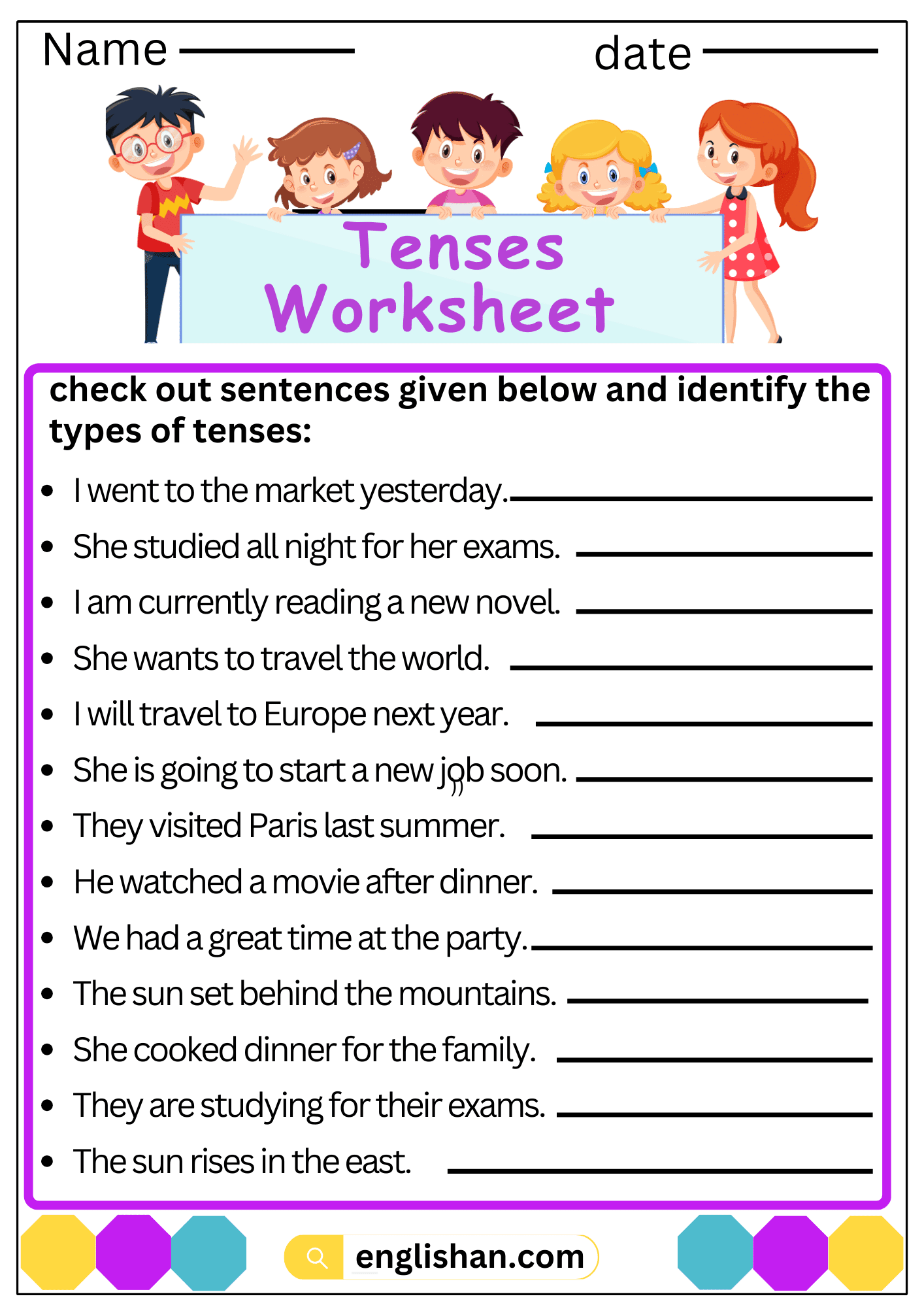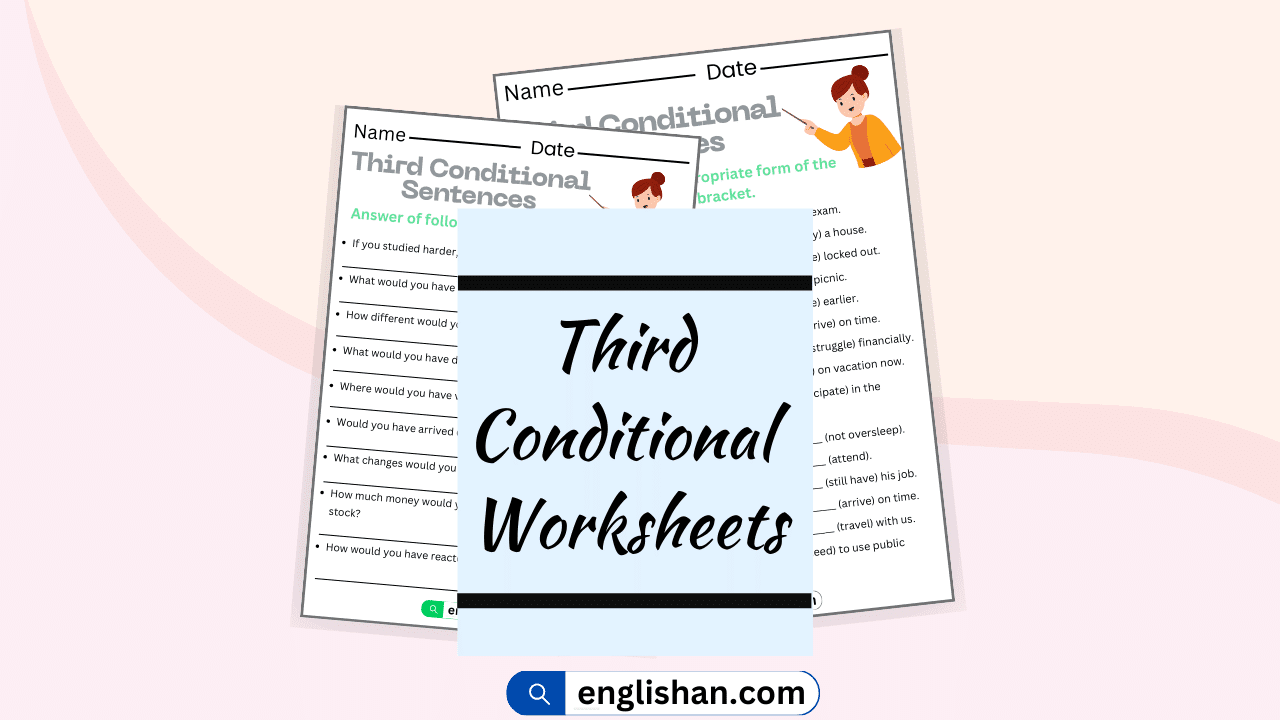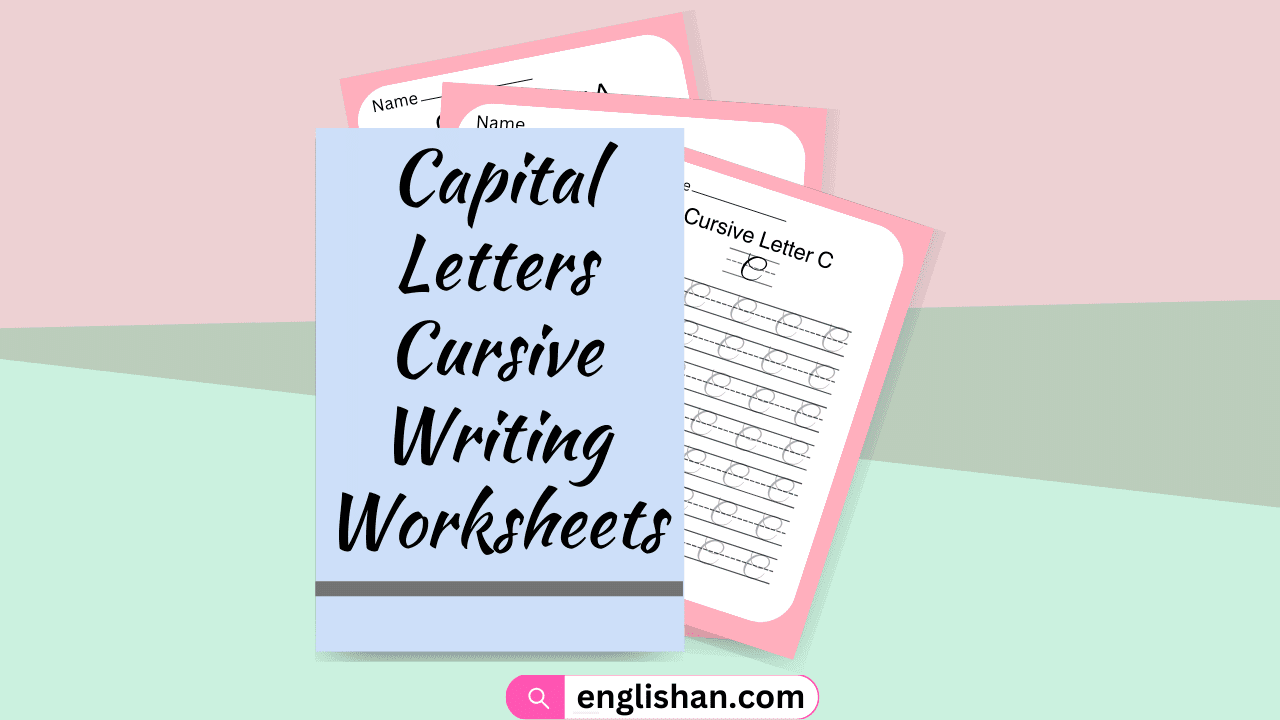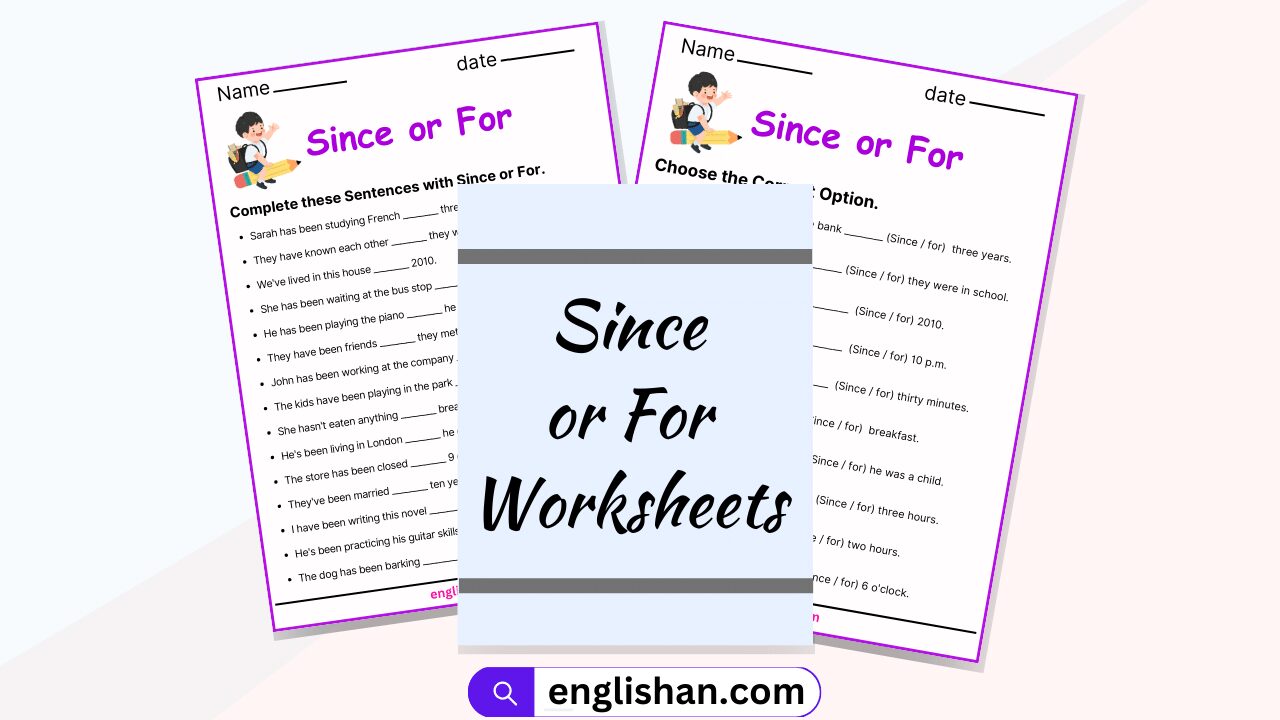In English, tenses show time. There are three main types of tenses: past, present, and future. Each type has a worksheet to practice. Worksheet tenses help you understand when things happen. Names of tenses tell us the timing: past is before, present is now, and future is later. For example, “I play” is present, “I played” is past, and “I will play” is future. Worksheets make learning tenses fun and interactive. By using tenses worksheet, you’ll master English time expressions effortlessly!
Types of Tenses:
- Present Tense: This tense talks about what’s happening now or things that are always true. For example, “She reads books.”
- Past Tense: Past tense is used for things that happened before the present time. For instance, “He finished his homework yesterday.”
- Future Tense: Future tense talks about what will happen. For example, “They will visit their grandparents next weekend.”
Subtypes of Tenses:
Present Tense
- Present Indefinite: Used for general facts or habitual actions. Example: “She reads books.”
- Present Continuous: Describes actions happening right now or around the present moment. Example: “They are playing football.”
- Present Perfect: Connects the past with the present, indicating an action that occurred at an unspecified time before now. Example: “I have visited Paris.”
- Present Perfect Continuous: Indicates an action that started in the past, continues into the present, and might continue in the future. Example: “She has been studying all night.”
Past Tense
- Past Simple: Used for actions that happened at a specific point in the past. Example: “He finished his homework yesterday.”
- Past Continuous: Describes actions that were ongoing in the past. Example: “They were watching TV when the phone rang.”
- Past Perfect: Expresses an action that happened before another action in the past. Example: “She had already eaten when I arrived.”
- Past Perfect Continuous: Indicates a continuous action that started in the past and continued up until another point in the past. Example: “I had been reading for hours before I felt sleepy.”
Future Tense
- Future Simple: Used for actions that will happen in the future. Example: “They will travel to Europe next summer.”
- Future Continuous: Describes actions that will be ongoing at a specific future time. Example: “This time tomorrow, I will be flying to London.”
- Future Perfect: Indicates an action that will be completed before a specific point in the future. Example: “By next year, he will have graduated.”
- Future Perfect Continuous: Describes an ongoing action that will be completed before a specific future time. Example: “I will have been working here for five years by the end of this month.”

worksheet Tenses
Exercise 1: Identify types of tenses in Sentences
- I went to the market yesterday.
- She studied all night for her exams.
- I am currently reading a new novel.
- She wants to travel the world
- I will travel to Europe next year.
- She is going to start a new job soon.
- They visited Paris last summer.
- He watched a movie after dinner.
- We had a great time at the party.
- The sun set behind the mountains.
- She cooked dinner for the family.
- They are studying for their exams.
- The sun rises in the east.
- He plays the guitar beautifully.
- She works at the local library.
- They visit their grandparents every weekend.
- They will visit us during the holidays.
- He will finish his project by tomorrow.
- We are planning to buy a new house.
- She will be studying abroad next semester.
- He will have completed his degree by the end of this year.
- He bought a new car last month.
- They played football in the park.
- I finished reading the book yesterday.
- I run in the park every morning.
- He teaches mathematics at the high school.
- She writes poems in her free time.
- They are going to organize a party for her birthday.
- I will learn to play the piano in the future.
- She will have written her thesis by the deadline.
Exercise 2: Identify types of tenses in paragraph
Yesterday, Mary visited the zoo and enjoyed seeing the animals. Today, she is at the aquarium, eagerly observing marine creatures. Tomorrow, she will have lunch at her favorite restaurant after her zoo visit, and then she plans to share her experiences with her friends. Mary loves animals and has always been fascinated by marine life, so these experiences bring her great joy.
You May Also Like




